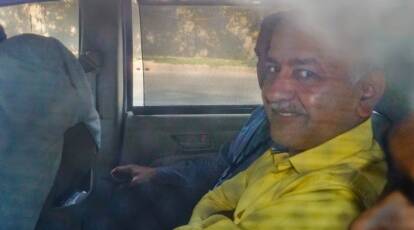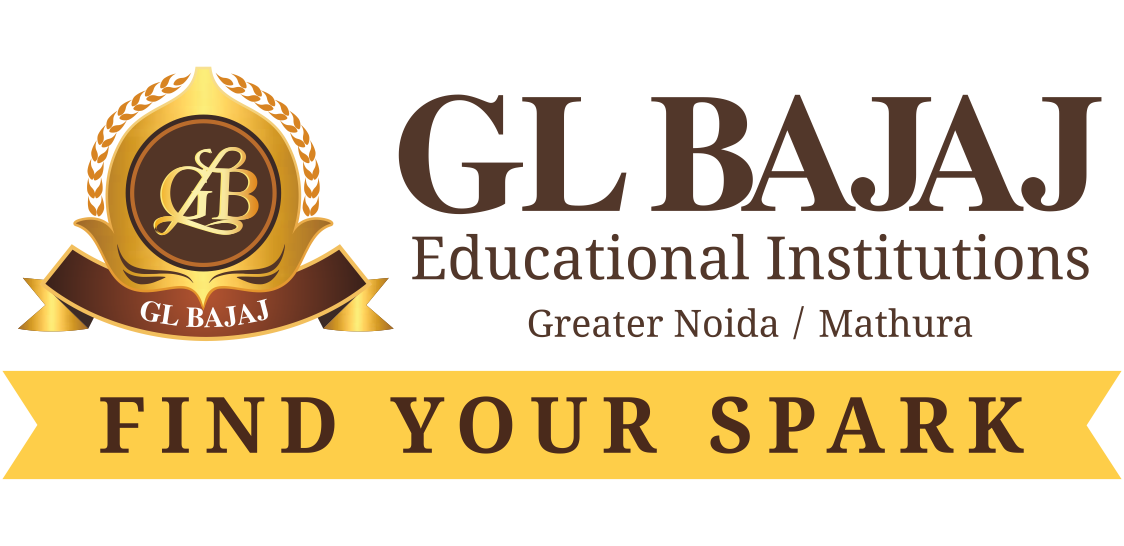Promotion & protection of ancient Indian Languages is need of the hour: Vice President
Vice President calls for a national movement for promotion of mother tongue;
Accord a sense of dignity & a sense of pride to those who speak, write and communicate in Indian languages;
Harness the power of technology to preserve & promote our languages;
Confers ‘President’s Certificate of Honour’ and ‘Maharshi Badrayan Vyas Samman’ Awards on scholars in Classical Languages
The Vice President of India, Shri M. Venkaiah Naidu has said that promotion and protection of ancient Indian languages was the need of the hour as they offer a window to our ancient civilisational values, knowledge and wisdom.
Addressing the gathering after conferring around 100 ‘President’s Certificate of Honour’ and ‘Maharshi Badrayan Vyas Samman’ Awards to scholars in Classical Languages, here today, Shri Naidu said “When a language dies, an entire culture dies. We simply cannot let that happen. Protecting our cultural heritage, including languages is our constitutionally mandated duty”, he asserted.
Observing that studies by experts estimate that almost 600 languages were on the verge of extinction and more than 250 languages have disappeared in the past 60 years, the Vice President that the modern Indian languages have ancient roots and are derived in some way from the classical languages. “If we don’t preserve and sustain this link, we lose a very precious key to the treasure house we have all inherited”, he warned.
Emphasizing that language preservation and development needed multi-pronged approach, Shri Naidu said it should begin at the primary school level and continued to higher levels of education. “Functional literacy in at least one language should be ensured”, he added.
Urging people to start using their native languages at home, in the community, in meetings and in administration, the Vice President called for a national movement to protect and preserve the mother tongue. He asked the state governments, Centre, academicians and the school administrations to provide primary and higher education in mother tongue.
Shri Naidu also wanted adequate attention to be given to dialects and folk literature, apart from encouraging Indian language publications, journals and children’s books in local languages. “We must accord a sense of pride to those who speak, write and communicate in these languages, he added.
Saying that language was a vehicle of intergenerational transmission of culture, scientific knowledge and a worldview, the Vice President said that language evolves with human evolution and gets nourished by constant use.
The Vice President called for measures to encourage scholars to do research using the primary sources and unearth new nuggets of knowledge. ‘We must keep on adding to the knowledge and illuminate our present and future,’ he said.
“We must harness the power of technology to preserve and promote our languages and culture. We must have many more technological tools for communication in local languages to serve the needs of all our people speaking different languages”, Shri Naidu stressed.
The prestigious event organised by the HRD Ministry witnessed the presence of around 100 eminent scholars, linguists who have made immense contribution to protection and promotion of Indian Classical Languages through their writings in prose, poetry and several other literary works. Awards were presented for their stellar work in Sanskrit, Arabic, Persian, Pali, Prakrit, Classical Kannada, Classical Telugu, and Classical Malayalam for the years 2016, 2017 and 2018.
Shri Naidu also released Linguistic Data Resources for Artificial Intelligence and launched Data Distribution Portal that helps in developing language technology and artificial intelligence tools for many Indian languages.
The Data Resource released by the Vice President was the largest corpora for these languages available so far in the public domain. It comprises 31 large text and speech data sets in 19 scheduled Indian languages. The Data Distribution Portal launched would be made available for free to the academic and not-for-profit research organizations.
The Secretary, Dept. of Higher Education, Ministry of Human Resource Development, Shri R. Subrahmanyam, the Director CIL, Prof. D.G. Rao, the Vice Chancellor of Rashtriya Sanskrit Sanskthan, Prof. P.N Shastri, the Joint Secretary (Management & Languages), Dept of Higher Education, Ministry of Human Resource and Development, Shri Sanjay Kumar Sinha and several senior bureaucrats of government of India were present.
Following is the text of Vice President’s address:
“I am indeed blessed to be among eminent linguists and scholars today and present the President Award Honors to them for their service to the preservation and development of classical languages.
I heartily welcome all the renowned scholars who are keeping alive the traditional knowledge and who are acting as the intellectual bridges between the past and the present.
The great Indian poet Acharya Dandi, had said that if the light of language does not exist, we will be groping in a dark world.
Language is a tool for intellectual and emotional expression.
Language is a vehicle of intergenerational transmission of culture, scientific knowledge and a worldview.
It is the vital, unseen thread that links the past with the present.
It evolves with human evolution and gets nourished by constant use.
I have always emphasized the importance of protecting and conserving our linguistic heritage. Our languages are a crucial part of our history, our culture and our evolution as a society. In fact, they define our identity, traditions and customs. They play a significant role in creating and strengthening bonds among the people.
Ours is a multilingual country where more than 19,500 languages or dialects are spoken. However, almost 97 per cent of the population speaks one of the 22 scheduled languages.
The modern Indian languages have ancient roots and are derived in some way from the classical languages.
The classical languages provide the window to our past, to the civilizational values of yesteryears, to the knowledge and wisdom of our ancient thinkers, scientists, poets, sages, doctors, philosophers and rulers.
If we don’t preserve and sustain this link, we lose a very precious key to the treasure house we have all inherited.
Studies by experts estimate that almost 600 languages are on the verge of extinction and that more than 250 languages have disappeared in the past 60 years.
When a language dies, an entire culture dies. We simply cannot let that happen. Protecting our cultural heritage, including languages is our constitutionally mandated duty. Studying ancient texts and propagating them to modern audiences in the need of the hour. I am glad that today we are recognizing scholars who are engaged in this sacred mission.
Since studying the classical languages and literature would provide access to authentic sources of history, National Mission for Manuscripts was set up when Shri Atal Bihari Vajpayee was the Prime Minister.
The major objective of the mission is to unearth vast manuscript wealth in India and use modern and indigenous techniques to conserve them. It is estimated that India possesses about 10 million manuscripts, probably the largest collection in the world.
Preservation of ancient texts is only the first step. What we need to do is to encourage scholars to do research using these primary sources and unearth new nuggets of knowledge. We must keep on adding to the knowledge and illuminate our present and future.
I am happy to note that the Indian government’s scheme seeks to reward dedicated scholars both in India and abroad for the development of various classical languages.
I am told that the purpose of the scheme is to recognize the life-long work of the scholars and talented scholars of Sanskrit, Pali, Prakrit, Arabic, Persian, Classical Telugu, Classical Kannada, Classical Oriya and Classical Malayalam languages.
Dear sisters and brothers,
Language preservation and development needs a multi-pronged approach.
It should begin at the primary school level and be continued to higher levels of education. Functional literacy in atleast one language should be ensured.
More and more people should start using their native languages at home, in the community, in meetings and in administration. More people should write poetry, stories, novels and dramas in these languages. We must accord a sense of dignity and a sense of pride to those who speak, write and communicate in these languages. We must encourage Indian language publications, journals and children’s books. Dialects and folk literature must be given adequate focus.
Language should become a catalyst for inclusive development.
Language promotion should be an integral part of good governance.
Sisters and brothers,
Today we are living in a rapidly changing world in which technology is transforming the way we live and work. We must harness the power of technology to preserve and promote our languages and culture.
I am glad that today we are taking an important step in that direction.
I am delighted to release Linguistic Data Resources for Artificial Intelligence.
This fills in a major gap in our existing IT architecture.
The resources required to develop language technology and artificial intelligence based tools are inadequate or unavailable for many Indian languages. To fill this gap, the Government of India has launched the scheme of Linguistic Data Consortium for Indian Languages (LDC-IL) in 2008 and has been preparing high quality linguistic resources since over the last eleven years in all the scheduled languages of India.
Today we are releasing 31 large text and speech datasets in 19 scheduled Indian languages. These are the largest corpora for these languages available so far in the public domain.
Along with this, I am happy that a Data Distribution Portal is also being launched where more and varied datasets will be added in the coming days using several types of Artificial Intelligence based technologies such as automatic dictation, speech recognition, language understanding, machine translation, grammar and spell check.
While these datasets are available for free to the academic and not-for-profit research organizations, these are also available to industry at a very economical cost.
I am sure that the release of these resources marks the beginning of new era for the availability of cutting edge IT tools in Indian languages and breaks the language barrier in the digital domain.
Dear friends, our lives are impacted by Artificial Intelligence (AI) on a daily basis at every level.
If we can use AI and build capabilities and tools in local languages, it can certainly help us to democratize knowledge acquisition as well as knowledge preservation and development.
We must have many more technological tools for communication in local languages to serve the needs of all our people speaking different languages.
The mission of “digital India” can be a mission for a literate India and a mission for an inclusive knowledge society.
The Central Institute of Indian Languages has been doing commendable work to provide the linguistic resources in Indian languages. I do hope they will continue these efforts with renewed enthusiasm.
With a total of 31 datasets in 19 scheduled languages presently available for download, I hope that all the technical and research institutes, start-ups and researchers will be able to take advantage of these databases.
I would like to once again congratulate all the distinguished scholars. My best wishes to the Ministry of Human Resource Development, and the institutes engaged in the preservation, propagation and popularization of Indian languages.
मैं आप सभी विद्वत्जनों को राष्ट्रपति पुरस्कार से सम्मानित होने की हार्दिक बधाई देता हूं।
बहनों और भाईयों
भारतीय परंपरा में माना गया है कि सृष्टि का निर्माण ही शब्दनाद से हुआ है। मानव का व्यक्तित्व और विचार संसारभाषा से ही बनते हैं।
भाषाई विविधता का अपना सौंदर्य है। भाषाओं के उपवन में ही विचारों और अभिव्यक्ति के फूल खिलते हैं। किसी भाषा केसमाप्त होने के साथ एक संस्कृति, उसका संस्कार बोध विलुप्त होता है। मानव चेतना की विकास श्रृंखला में एकअपूरर्णीय रिक्तता आती है।
यदि हम विदेशी भाषाऐं सीख सकते हैं तो हम भारतीय भाषाओं को कहीं आसानी से सीख सकते हैं। उनके समृद्ध साहित्यको आसानी से समझ सकते हैं। साहित्य अकादमी, नेशनल बुक ट्रस्ट जैसी संस्थाओं को विभिन्न भारतीय भाषाओं केश्रेष्ठ साहित्य का सरल, सुगम अनुवाद उपलब्ध कराना चाहिए।
हमारे संस्कार एक हैं, हमारी संवेदनाऐं समान हैं। सदियों का सांस्कृतिक आदान प्रदान हमारी प्राचीन भाषाओं के साहित्यमें झलकता है।
सम्मानीय विद्वत्जन,
भारत की अद्भुत भाषाई विविधता, हमारी साहित्यिक धरोहर के संरक्षण में आपका महत्वपूर्ण सहयोग अपेक्षित है। आपभारत के साहित्यिक और सांस्कृतिक पुनर्जागरण के पुरोधा बनें, समाज आपसे मार्गदर्शन की अपेक्षा करता है।
जय हिन्द!”
***











